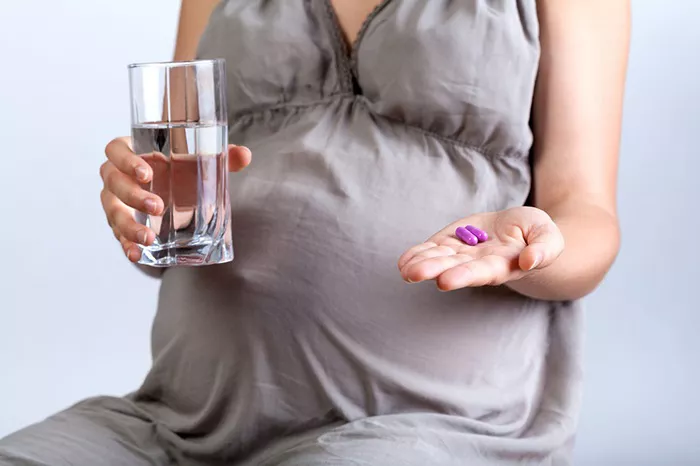Iron is crucial for the health of both the mother and the developing baby during pregnancy. This article provides a detailed look at how much iron pregnant women need, the reasons for these requirements, and how to meet them effectively.
Importance of Iron During Pregnancy
Iron is an essential mineral that helps in producing hemoglobin, the protein in red blood cells that carries oxygen throughout the body. During pregnancy, a woman’s blood volume increases significantly to support the growing fetus. As a result, iron requirements rise to support this increased blood volume and to ensure sufficient oxygen supply to both mother and baby.
Recommended Iron Intake for Pregnant Women
The amount of iron a pregnant woman should take varies depending on her stage of pregnancy and her overall health. According to health guidelines:
First Trimester: During the first trimester, the recommended daily intake of iron is approximately 27 milligrams (mg) per day.
Second Trimester: The requirement remains around 27 mg per day. This level is maintained to continue supporting the increased blood volume and the fetus’s growth.
Third Trimester: Iron needs may increase slightly, but the recommendation generally stays at 27 mg per day.
These guidelines are set by health organizations such as the American College of Obstetricians and Gynecologists (ACOG) and the World Health Organization (WHO).
Why Iron Needs Increase During Pregnancy
During pregnancy, several factors contribute to the increased iron requirement:
Increased Blood Volume:
The mother’s blood volume increases by about 50% to support the growing fetus. This requires more iron to produce additional hemoglobin.
Fetal Development:
The developing fetus requires iron for its own growth and development, particularly for the formation of red blood cells and the development of the brain.
Placental Development:
The placenta also needs iron to function effectively and to support nutrient and oxygen exchange between mother and baby.
Labor and Delivery:
Iron stores can be depleted after labor due to blood loss, making adequate intake during pregnancy essential for recovery.
Sources of Iron
Iron can be obtained from both dietary sources and supplements. Here are some common sources:
Dietary Sources:
Heme Iron: Found in animal products such as red meat, poultry, and fish. This type of iron is more easily absorbed by the body.
Non-Heme Iron: Found in plant-based foods like lentils, beans, tofu, spinach, and fortified cereals. Although less readily absorbed, non-heme iron is still a valuable source.
Iron Supplements:
Ferrous Sulfate: A commonly prescribed form of iron supplement.
Ferrous Gluconate: A gentler form on the stomach.
Ferrous Fumarate: Another effective option.
SEE ALSO: What Are the First Signs of Pregnancy After Implantation?
Factors Affecting Iron Absorption
Several factors can affect how well the body absorbs iron:
Vitamin C: Consuming vitamin C-rich foods (like oranges, strawberries, and bell peppers) can enhance the absorption of non-heme iron.
Calcium: High calcium intake can interfere with iron absorption, so it’s best to take calcium supplements separately from iron supplements.
Tea and Coffee: These beverages contain compounds that can inhibit iron absorption. It’s advisable to consume them between meals rather than with meals.
Iron Deficiency and Anemia
Iron deficiency during pregnancy can lead to anemia, a condition where there aren’t enough red blood cells to carry adequate oxygen throughout the body. Symptoms of iron deficiency anemia include:
Fatigue
Weakness
Pale skin
Shortness of breath
Dizziness
Anemia can have serious consequences for both mother and baby, including premature birth and low birth weight. Therefore, regular screening for iron levels is important during prenatal visits.
Managing Iron Intake
To manage iron intake effectively:
Consult Healthcare Provider:
Always discuss with a healthcare provider before starting any supplements. They can recommend the appropriate dosage based on individual needs.
Balanced Diet:
Aim for a balanced diet that includes both heme and non-heme iron sources. A varied diet helps meet nutritional needs and supports overall health.
Monitor Supplementation:
If taking iron supplements, follow the prescribed dosage. Excessive iron intake can cause gastrointestinal issues and other health problems.
Conclusion
Iron is a critical nutrient for pregnant women, supporting increased blood volume, fetal development, and placental function. The recommended daily intake of iron during pregnancy is 27 mg, which can be met through a combination of dietary sources and supplements. Regular monitoring and consultation with a healthcare provider are essential to ensure adequate iron levels and overall health during pregnancy.
By understanding and managing iron intake effectively, pregnant women can support their own health and the healthy development of their baby.
FAQs
Can I Get Enough Iron from My Diet Alone?
For many women, a well-balanced diet that includes iron-rich foods can meet their needs. However, supplements may be necessary if dietary intake is insufficient.
What Are the Risks of Too Much Iron?
Excessive iron intake can lead to gastrointestinal problems and other health issues. It’s important to follow recommended guidelines and consult with a healthcare provider.
When Should I Start Taking Iron Supplements?
Some women may need to start supplements before conception if they have low iron levels. Most will start during pregnancy if recommended by their healthcare provider.


